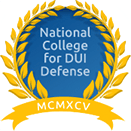A Former Middlesex County Prosecutor in our New Brunswick Office Is Ready To Defend Your Robbery Charge
 One of the most serious criminal charges someone can face in Middlesex County is robbery. This is especially true when the offense is based on armed robbery or another basis which makes the arrest a first degree crime. If you have been charged with robbery in New Brunswick, Woodbridge, Piscataway, Edison, Old Bridge, East Brunswick or anywhere else in the county, you definitely need the very best attorney you can find to defend your charge. The lawyers at our firm have precisely what you need.
One of the most serious criminal charges someone can face in Middlesex County is robbery. This is especially true when the offense is based on armed robbery or another basis which makes the arrest a first degree crime. If you have been charged with robbery in New Brunswick, Woodbridge, Piscataway, Edison, Old Bridge, East Brunswick or anywhere else in the county, you definitely need the very best attorney you can find to defend your charge. The lawyers at our firm have precisely what you need.
We are the Law Offices of Jonathan F. Marshall, a powerhouse criminal defense firm located on Paterson Street in New Brunswick directly across from the Middlesex County Courthouse. Our team of talented attorneys can offer you:
- Over 200 years of combined experience defending first and second degree robbery charges in Middlesex County
- A team of 15 lawyers that handle exclusively criminal cases
- Former Director in the Middlesex County Prosecutors Office
- Former County Prosecutors that include an ex-director of the Major Crimes Bureau, Juvenile Unit, Special Operations and even an entire Trial Division
- Certified criminal trial attorney
If you would like to speak to an attorney with the knowledge and skill to effectively defend you, contact our New Brunswick office at (732) 246-7126. Attorneys are available 24/7 to assist you in a free initial consultation.
Charged With Robbery in Middlesex County
The offense of robbery is set forth at N.J.S.A. 2C:15-1 . This offense is committed if, during the course of a theft, the actor threatens to use force, uses force, or threatens to commit a crime against the victim. Robbery is a typically a second degree crime but is enhanced to a first degree crime if the accused attempts to kill, purposely inflicts or attempts to inflict serious bodily injury, or if the actor was armed or uses or threatens to use deadly force.
Elements of Second Degree Robbery
There are two fundamental elements of proof that must be established in order to secure a conviction under 2C:15-1. The prosecutor must prove, beyond reasonable doubt, that the defendant: (1) Committed a theft or attempted to commit a theft; and (2) During the course of commission of this conduct, the actor: (a) knowingly inflicted bodily injury or used force upon another; (b) threatened another with or purposely put another in fear of immediate bodily injury; or (c) committed or threatened immediately to commit the crime of .
Elements of First Degree Robbery
A robbery becomes a first degree crime where added characteristics of violence are involved. The more specific elements of first degree robbery are: (1) The defendant was in the course of committing a theft; and (2) While in the course of committing the theft, the defendant: (a) knowingly inflicted bodily injury or used force upon another; (b) threatened another with or purposely put him/her in fear of immediate bodily injury; or (c) committed or threatened immediately to commit the crime of the first degree or second degree crime.
Penalties If Convicted for Robbery In New Brunswick at the Middlesex County Superior Court
As previously state, the penalties for robbery are different depending on whether you are charged and convicted for first degree robbery or second degree robbery. Second degree robbery results in a fine of up to $150,000 and 5-10 years in prison. A first degree robbery charge carries a $200,000 fine and 10-20 years in state prison.
You should also know that since robbery is considered a crime of violence, it falls under the No Early Release Act, commonly referred to as NERA. This sentencing provision mandates that an individual sentenced for robbery serve at least 85% of the sentence imposed before they can be considered for parole. This is referred to as a mandatory minimum term of imprisonment.
Beyond the penalties from a conviction, there are severe collateral consequences. A robbery conviction on your criminal record will impact your ability to find employment, obtain housing, and maintain custody of a child.
Defenses to a Middlesex County Robbery Offense
Just because someone was arrested or otherwise accused of robbery, that does not mean that they will be convicted. There are many ways that a savvy and effective criminal lawyer on our team can help you escape the negative impact of a robbery charge or conspiracy to commit robbery. For example, it may be that the witness testimony and other evidence against you is flawed. Perhaps your constitutional rights were violated during the course of the investigation, interrogation or arrest. We also have the benefit of decades of experience, relationships and familiarity with the court system to utilize so that a favorable plea can be negotiated. The point is that our attorneys have a virtual laundry list of avenues to utilize in order to help you. including more common robbery defenses such as:
- There Was No Theft. Robbery is the use of force or the threat of force during the commission of a theft. What this means is that to prove a robbery occurred, it must be shown by the prosecutor that the theft was attempted or actually happened. If the prosecutor cannot show that something was stolen or there was an attempt at stealing something, then they will not be able to prove there was a robbery.
- Alibi. An alibi is a claim or proof that you were not physically present when you were accused of the crime. So, if the police and victim claim the robbery took place at midnight on New Year’s Eve, and there is video evidence that you were in another state at that time, you may have a successful alibi defense.
- Theft But No Robbery. Every robbery conviction requires a theft or an attempted theft to also be proven. For example, stealing a bike that was left unattended outside of a convenience store is not a robbery unless there was force or a threat of force used to take the bike. Still, it is important to remember that you may still be charged with robbery if there was a theft and another first or second-degree crime was committed during the course of that theft.
- Lack Of Identification. An important aspect of proving a robbery is establishing that the person accused of the crime is the one who did it. This is usually done through eyewitness testimony, video evidence, or circumstantial evidence. Eyewitness testimony can be unreliable; even video evidence is not always clear. Unless it can be shown beyond a reasonable doubt that you were the one that committed the robbery, the charge may be dismissed.
Obtaining Bail or Pretrial Release on a Middlesex County Robbery Charge
New Jersey has adopted bail reform and this has largely eliminated the posting of money or bond to secure release from custody. Every defendant arrested for robbery in Middlesex County must be taken into custody so they can appear before a Superior Court judge who can decide whether or not they should be released and, if they are, those conditions that will ensure that they appear in court and not commit another offense while on Pretrial Release. The biggest tool utilized by the court in this decision is a Public Safety Assessment (“PSA”) that predicts the level of risk, on a scale of 1 to 6, for not appear in court and committed another offense if released. You may be released on Level I, Level II, or Level III, or Level III Plus reporting. Our lawyers are highly skilled in representing clients detained on robbery charges and winning detention hearings.
New Brunswick Robbery Defense Lawyers
It should be more than readily apparent that a robbery case is an extremely serious matter that requires representation by the best attorney you can find. We believe that Jason Seidman, who served as the Director of the Gangs, Guns & Drug Task Force in the Middlesex County Prosecutors Office, and the other attorneys on our team represent a potent option for defending your robbery case. Whether you were arrested for robbery in Piscataway, East Brunswick, Sayreville, Woodbridge, Edison or another Middlesex County municipality, we have the lawyer to help you. To speak to Jason or another member of our staff about a detention hearing or any other aspect of your charge, call 732-246-7126 for a free consultation.
Frequently Asked Questions in Middlesex County Robbery Cases
How Are Robbery And Theft Different? Robbery is best thought of as a combination of theft and assault. In other words, you cannot be convicted of robbery if all you did was steal something. A robbery conviction requires the use or threat of force being used during the commission of a theft. You may also be charged with robbery if there was a theft and another first or second-degree crime was committed during the course of that theft.
Will I Go To Jail or Prison If I’m Convicted Of Robbery? Robbery is either a first degree or second degree crime. Both of these grades of criminal offense carry a presumption of incarceration so imprisonment is a really possibility whenever someone is charged with robbery in New Jersey. Notwithstanding, we can use the circumstances surrounding your charges (e.g. limited involvement, weak evidence, etc.) and a defendant’s criminal history (e.g. limited record involving serious crime or violence) will impact the penalty you will receive if convicted.
Can I Be Convicted Of Robbery If I Did Not Steal Anything? Stealing or attempting to steal something is necessary for a robbery charge. In other words, if you simply get into a fight with your neighbor and give them a black eye, but you did not steal or attempt to steal anything from them, you cannot be convicted of robbery.
Will I Be Given Bail If I’m Charged With Robbery? As previously stated, there is no longer classic bail in NJ. An individual arrested for robbery will customarily need to overcome a motion to detain in order to secure Pretrial Release. Our detention hearing defense attorneys know how to present the strongest and most effective arguments to obtain release conditions rather than remaining in custody.
Can I Obtain Pretrial Intervention On A Robbery Charge? Pretrial Intervention, also referred to as PTI, allows an individual to avoid a criminal record and conviction for a so it naturally follows that it is customarily limited to less serious crimes. Second degree crimes or higher aren’t eligible for the program although this relief can be granted with prosecutor consent. You will need to hire the very best and most connected New Brunswick criminal lawyer you can find if you want to obtain consent from the prosecutor for admission into PTI.
Is Robbery A Felony Or Misdemeanor In New Jersey? NJ law does not use the term “felony” or “misdemeanor” and, instead, refers to criminal charges in terms of indictable crimes and disorderly persons offenses. Robbery is an indictable crime that carries a minimum of five (5) years in prison by law so it is definitely considered felony in nature.
Can A Conviction For Robbery Impact My Immigration Status? Since robbery is an aggravated felony under Federal Immigration Law, you face the real possibility of being removed and deported from the United States if you aren’t a citizen and are convicted for robbery. This is another important reason to make certain that you hire the most talented criminal defense attorney in Middlesex County that you can find. We believe our firm represents a great option in this regard.













